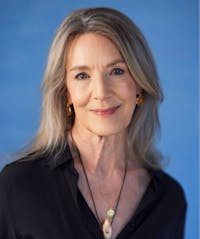Farming Evolved: Agriculture Through a Different Lens
In Southwest Iowa, near Clarinda, Seth Watkins is the fourth generation of his family to care for Pinhook Farm, where he raises beef cattle, goats, corn, oats, hay, cover crops, and a small flock of chickens.
Seth’s decision to begin the transition from industrial farming methods and focus on Stewardship instead of commodity production has been the key to Pinhook Farm’s evolving success. It has been a journey born from observation of his farm’s increasingly depleted soils and water, disappearing biodiversity, stresses on his livestock, and reliance on an onerous financial system and subsidies based neither in reality nor justice. He also came to suspect that practices requiring synthetic fertilizers and pesticides had led to serious health consequences within his own family.
As Seth studied and began to include alternative, regenerative practices on his farm, his journey also involved a dawning awareness of its history, and the Indigenous people who had been driven from the land long before the 150 years of his family’s occupation. Disturbed, too, by the poor treatment of workers in agriculture, Seth became convinced that “The real problem we face is a failing food system that needlessly exploits people and nature to secure the food we eat... When we focus on Stewardship and Social Equity, we build better farms. When we build better farms, we build better communities. When we build better communities, we build a better future.”
Seth’s long term goal is “to make Pinhook Farm smaller and more diversified instead of larger and more “efficient.”” This is the kind of farming that really has the capacity to feed the planet. Indeed, it is already doing so, with smallholders producing 70% of the world’s food. The future of agriculture lies in embracing and supporting the diverse small and medium sized farms and collectives that work with rather than against Nature; that protect our cultural and biological diversity and restore the health of the living soils and waters upon which humans rely for our own well-being. It lies in honoring traditional knowledge and treating the people who nourish us with fairness and respect.
In this TED talk, Seth Watkins describes his moving and compelling journey towards regenerative farming. He has since been selected as a “Food Systems Champion” by the UN Food Systems Summit in NYC in September, 2021, where he has been invited to present his views.



